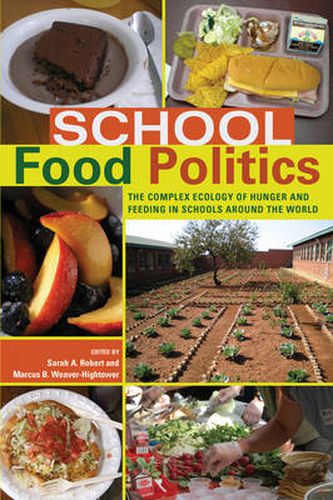Readings Newsletter
Become a Readings Member to make your shopping experience even easier.
Sign in or sign up for free!
You’re not far away from qualifying for FREE standard shipping within Australia
You’ve qualified for FREE standard shipping within Australia
The cart is loading…






This book has received the AESA (American Educational Studies Association) Critics Choice Award 2012.
The essays in School Food Politics explore the intersections of food and politics on all six of the inhabited continents of the world. Including electoral fights over universally free school meals in Korea, nutritional reforms to school dinners in England and canteens in Australia, teachers’ and doctors’ work on school feeding in Argentina, and more, the volume provides key illustrations of the many contexts that have witnessed intense struggles defining which children will eat; why; what and how they are served; and who will pay for and prepare the food. Contributors include reformers writing from their own perspectives, from the farm-to-school program in Burlington, Vermont, to efforts to apply principles of critical pedagogy in cooking programs for urban teens, to animal rights curriculum. Later chapters shift their focus to possibilities and hope for a different future for school food, one that is friendlier to students, lunch ladies, society, other creatures, and the planet.
$9.00 standard shipping within Australia
FREE standard shipping within Australia for orders over $100.00
Express & International shipping calculated at checkout
This book has received the AESA (American Educational Studies Association) Critics Choice Award 2012.
The essays in School Food Politics explore the intersections of food and politics on all six of the inhabited continents of the world. Including electoral fights over universally free school meals in Korea, nutritional reforms to school dinners in England and canteens in Australia, teachers’ and doctors’ work on school feeding in Argentina, and more, the volume provides key illustrations of the many contexts that have witnessed intense struggles defining which children will eat; why; what and how they are served; and who will pay for and prepare the food. Contributors include reformers writing from their own perspectives, from the farm-to-school program in Burlington, Vermont, to efforts to apply principles of critical pedagogy in cooking programs for urban teens, to animal rights curriculum. Later chapters shift their focus to possibilities and hope for a different future for school food, one that is friendlier to students, lunch ladies, society, other creatures, and the planet.